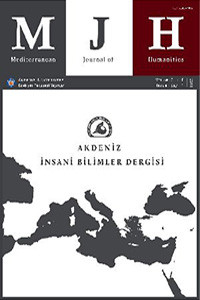Feedback Complexity and Writing Skill: The Relative Effectiveness of No Feedback, Error-flagging and Response-contingent Feedback Types
Öz
Despite controversies about the value of presenting written corrective feedback, research suggests that feedback has an undeniably significant role in improving performance in skill learning. However, little extant research has attended the different types of feedback ranged along a dimension of complexity. Thirty participants participated in this study in order to compare their writing accuracy under the no feedback, error-flagging, response-contingent and control conditions. The results of repeated measures, ANOVA revealed a significant main effect and interaction effect for feedback types on the accuracy improvement of learners from pre-test to post-test. Overall, these results suggest that unelaborated feedback is of limited pedagogical value, whereas elaborated feedback can contribute to linguistic accuracy in L2 writing.
Anahtar Kelimeler
Written corrective feedback elaborated feedback no feedback error-flagging response- contingent
Kaynakça
- Ashwell, T. (2000). “Patterns of Teacher Response to Student Writing in a Multiple-Draft Composition Classroom: Is Content Feedback Followed by Form Feedback the Best Method?”. Journal of Second Language Writing, 9, 227-257.
- Bitchener, J. (2008). “Evidence in Support of Written Corrective Feedback”. Journal of Second Language Writing, 17/2, 69-124.
- Bitchener, J., Young, S., & Cameron, D. (2005). “The Effect of Different Types of Corrective Feedback on ESL Students”. Journal of Second Language Writing, 12/3, 191-205.
- Carroll, S., Swain, M., & Roberge, Y. (1992). “The Role of Feedback in Adult Second Language Acquisition: Error Correction and Morphological Generalizations”. Applied Psycholinguistics, 13/2, 173-198.
- Chandler, J. (2003). “The Efficacy of Various Kinds of Error Feedback for Improvement in the Accuracy and Fluency of L2 Student Writing”. Journal of Second Language Writing, 12, 267-296.
- Corbett, A. T., & Anderson, J. R. (2001). “Locus of Feedback Control in Computer-Based Tutoring: Impact on Learning Rate, Achievement and Attitudes”. In Proceedings of ACM CHI 2001conference on human factors in computing systems, 245–252. New York: ACM Press.
- Dempsey, J., Driscoll, M., & Swindell, L. (1993). “Text-Based Feedback”. Eds.: Dempsey & G. Sales. Interactive Instruction and Feedback, 21-54. Englewood Cliffs: Educational Technology Publications.
- Fazio, L. (2001). “The Effect pf Corrections and Commentaries on the Journal Writing Accuracy of Minority- and Majority-Language Students”. Journal of Second Language Writing, 10, 55-69.
- Fisher, S. L., & Ford, J. K. (1998). “Differential Effects of Learner Effort and Goal Orientation on Two Learning Outcomes”. Personnel Psychology, 51, 397-420.
- Ford, J. K., Smith, E. M., Weissbein, D. A., Gully, S. M., & Salas, E. (1998). “Relationships of Goal Orientation, Metacognitive Activity, and Practice Strategies with Learning Outcomes and Transfer”. Journal of Applied Psychology, 83, 218-233
Ayrıntılar
| Birincil Dil | Türkçe |
|---|---|
| Konular | Eğitim Sosyolojisi |
| Bölüm | Araştırma Makaleleri |
| Yazarlar | |
| Yayımlanma Tarihi | 30 Aralık 2014 |
| Yayımlandığı Sayı | Yıl 2014 Cilt: 4 Sayı: 2 |
| Adres: Akdeniz İnsani Bilimler Dergisi Akdeniz Üniversitesi, Edebiyat Fakültesi 07058 Kampüs, Antalya / TÜRKİYE | E-Posta: mjh@akdeniz.edu.tr |


